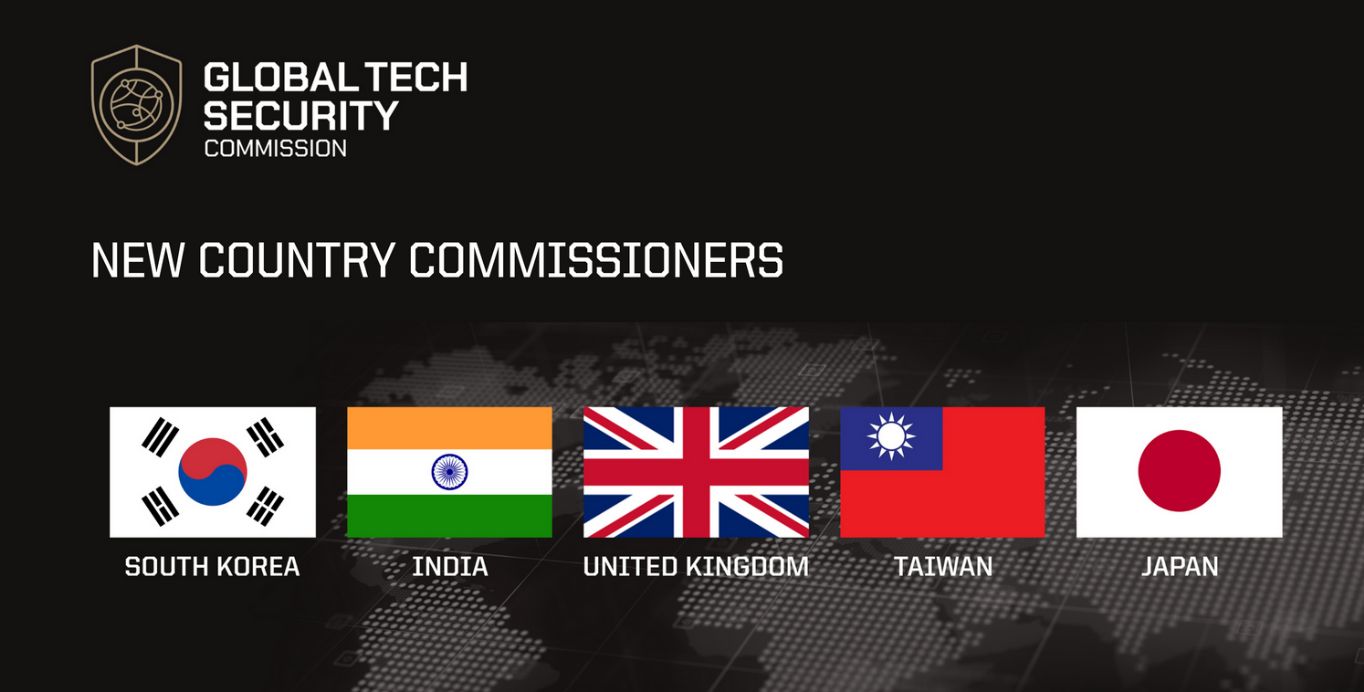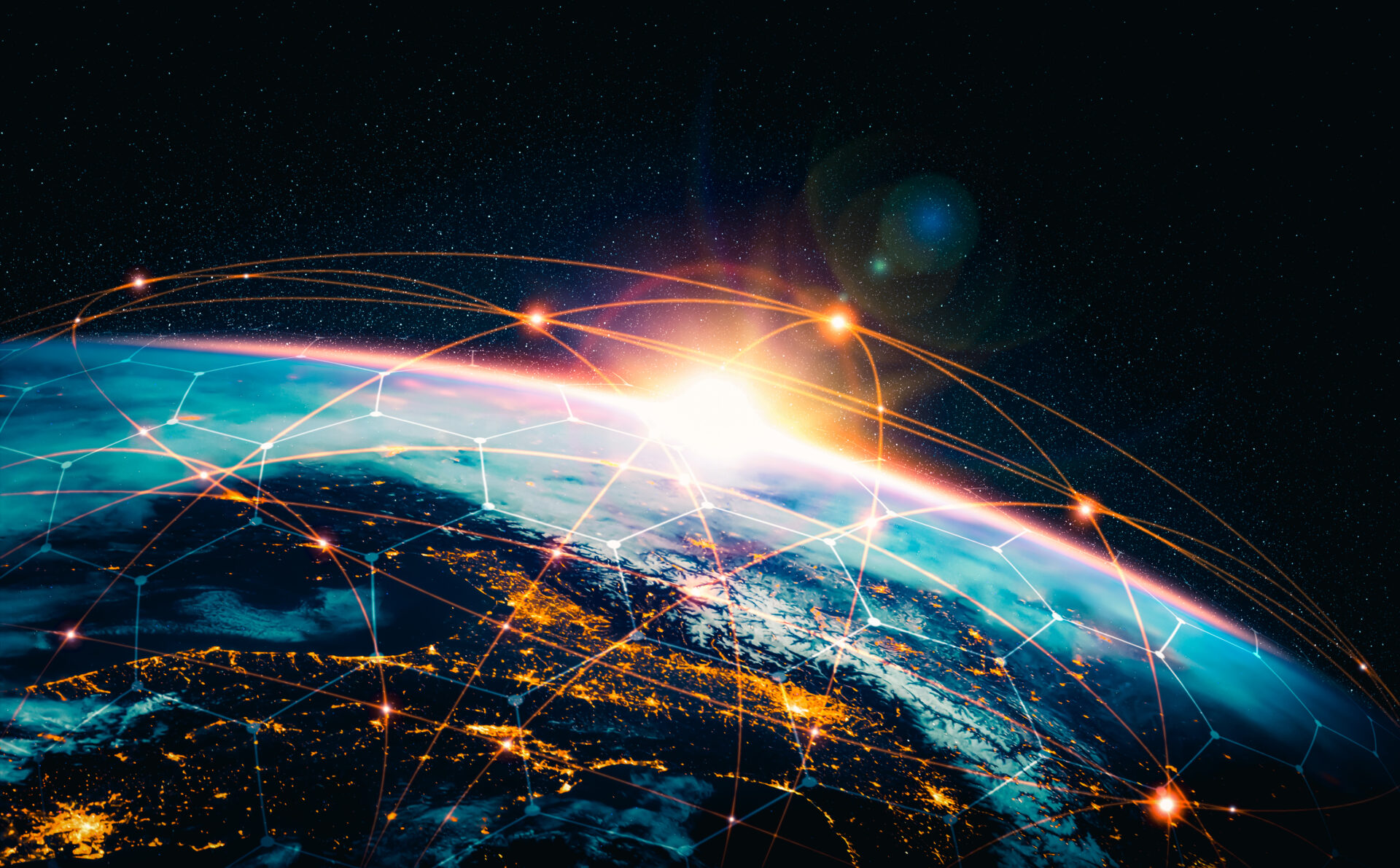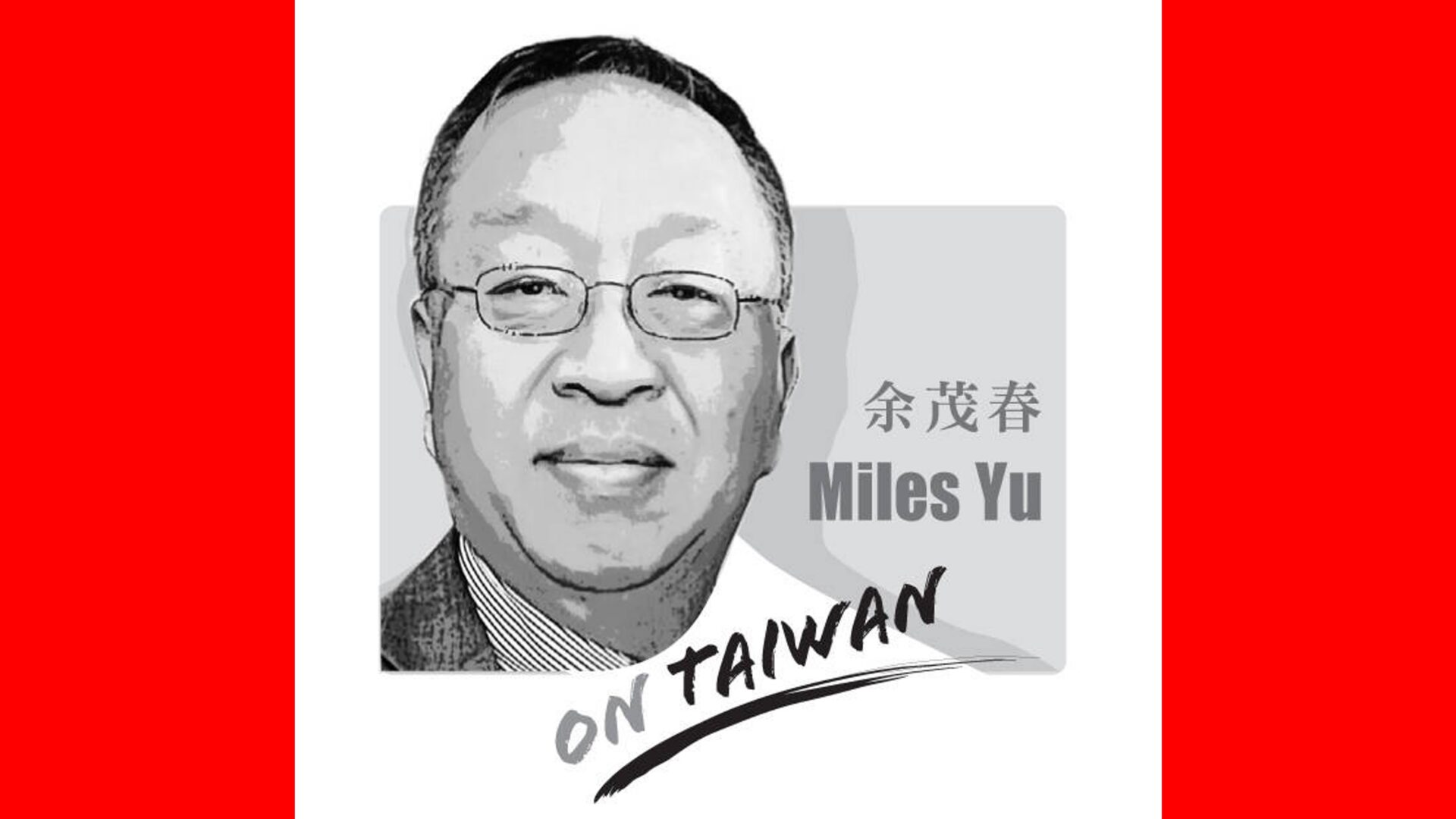
Global Tech Security Commission Appoints Country Commissioners to Counter Authoritarian Threats
Krach Institute for Tech Diplomacy at Purdue
07.27.23International Government and Business Leaders Join Efforts
to Further Strengthen Global Tech Security Strategy
WASHINGTON – The Global Tech Security Commission (GTSC) disclosed the appointment of five country Commissioners who will bolster the development of the Global Tech Security Strategy. This master blueprint is engineered to be the cornerstone in safeguarding liberty through the innovation and adoption of trusted cutting-edge technology. These global leaders and their handpicked Advisory Council Members will serve as the driving forces in navigating the complex terrains of technology, ensuring the realization of a world where technological advances fortify, rather than undermine, freedom and human dignity.
The new Country Commissioners are:
- South Korea Commissioner James Kim, Chairman and CEO of the American Chamber of Commerce in Korea and former CEO of Microsoft Korea and GM Korea
- India Commissioner Dr. Sameer Patil, a distinguished Senior Fellow at the Observer Research Foundation and former Director for the Prime Minister’s National Security Council Secretariat
- UK Commissioner Sir Iain Duncan Smith, a prominent UK parliament member and former Leader of the Conservative Party
- Taiwan Commissioner Minister Audrey Tang, the Minister of Digital Affairs for Taiwan and chairperson for National Institute of Cyber Security
- Japan Commissioner Tadao Yanase Senior Executive Vice President at NTT, former Vice Minister for International Affairs of the Ministry of Economy, Trade and Industry (METI) and former Executive Secretary to Prime Ministers Tarō Asō and Shinzo Abe
“The enlistment of these esteemed Commissioners and their Advisory Council Members reflects our unwavering resolve to unite democracies against the rising tide of techno-authoritarianism,” stated GTSC Co-Chair Keith Krach. ” In an age where the crossroads of technology and geopolitics are often fraught with peril, this stellar assembly’s guidance and visionary insights will be instrumental in crafting a strategy that acts as both shield and sword, defending democratic values and creating a prosperous, secure, and free global society.”
Each Commissioner on the Global Tech Security Commission is charged with assembling their own Advisory Councils, to bolster their contribution to the development of the Global Tech Security Strategy and grow the Global Tech Trust Network. The Commission is pleased to announce the first such group, assembled by Commissioner Tadao Yanase to form the Japan Advisory Council:
- Taro Aso: Former Prime Minister of Japan; Former Minister for Foreign Affairs; Former Minister for Finance; Member of the House of Representatives
- Takayuki Kobayashi: Former Minister for Economic Security; Member of the House of Representatives
- Yoshimitsu Kobayashi: Chairman, Tokyo Electric Power Company; Former Chairman, Mitsubishi Chemical
- Takayuki Morita: President and CEO, NEC Corporation
- Shigeru Kitamura: Former National Security Advisor of Japan; CEO, Kitamura Economic Security Inc.
- Nobukatsu Kanehara: Former Deputy Secretary, National Security Secretariat; Former Assistant Chief Cabinet Secretary; Professor, Doshisha University
- Kazuhisa Shimada: Former Administrative Vice-Minister of Defense; Former Executive Secretary to Prime Minister Shinzo Abe; Special Advisor to the Cabinet
- Yasuhiko Taniwaki: Former Vice-Minister of Policy, Ministry of Internal Affairs and Communications (MIC); Executive Vice President, Internet Initiative Japan Inc.
- Yoichi Funabashi: Former Chief Editor of Asahi Shinbun; Founder, Asia Pacific Initiative
- Shinichi Kitaoka: Former President, JICA (Japan International Cooperation Agency); Professor Emeritus, University of Tokyo
The following are statements from the newest International Commissioners:
“Amid the growing geopolitical dynamics in Asia, Korea’s partnership with allies on critical technologies has become ever more paramount to ensure global economic security.” said South Korea Commissioner James Kim. “The Commission’s global scope will enable significant thought leadership and business strategies to be formed across sectors. As the Global Tech Security’s Commissioner representing Korea, I look forward to identifying opportunities to enhance the economic and tech security alliance between the United States, Korea, and all of our partners and allies.”
“With authoritarian regimes gaining a lead in emerging technologies, it is not only urgent but imperative for like-minded democracies to unite and protect democratic values,” said India Commissioner Dr. Sameer Patil. “The tech-based partnership carved out by these democratic powers will expand our advantage and decisively tilt the balance in our favor. The Global Tech Security Commission (GTSC) will significantly contribute to advancing this effort. India, with its unique civilizational ethos, experience in tackling the China challenge in its closest proximity, and tech power in its own right, will be a significant stakeholder in this engagement. I am, therefore, extremely privileged to be part of the GTSC.”
“As we in the Inter-Parliamentary Alliance on China have shown, there has never been a more important time to come together as democracies to focus on China. That is why the Global Tech Security Commission is so important,” said UK Commissioner Sir Iain Duncan Smith. “I’m looking forward to getting to work, ensuring that technology advances a level playing field for all, and protects our cherished freedoms.”
“As a new member of the Global Tech Security Commission, we are committed to working with all stakeholders, especially on open and collaborative R&D, democratization of AI, privacy, and cybersecurity standards,” said Taiwan Commissioner Minister Audrey Tang. “We look forward to engaging in inclusive co-creation that leads to digital resilience for all.”
“As the technology competition with countries of particular concern has become increasingly serious from the strategic viewpoint, it becomes more important than ever to explore and share the strategic plan among the like-minded countries,” said Japan Commissioner Tadao Yanase. “I am very honored to contribute to developing the strategy on how Japan and its allies will meet this challenge as the Commissioner for Japan of the Global Tech Security Commission.”
The Commission was chartered to address Congress’ demand for a bipartisan tech security strategy. The GTSC aims to unite allied nations, harness private sector innovation, and establish a Global Tech Trust Network to foster and safeguard trusted technologies. Its mission involves devising holistic offense and defense strategies for tech sectors deemed crucial for national security by the White House, and incorporating them into a Global Tech Security Strategy.
The GTSC’s purpose is to consolidate transatlantic and Indo-Pacific allies against growing worldwide authoritarianism on pivotal tech issues. It is formed of an international cadre comprising 12 tech, 15 international, and over 20 strategy commissioners leading expert advisory councils. Co-chairs Keith Krach, former U.S. Under Secretary of State and DocuSign CEO, and Kersti Kaljulaid, former President of Estonia and Chair of the Three Seas Initiative, guide the Commission. Its activities are facilitated by the Krach Institute for Tech Diplomacy at Purdue and the Atlantic Council’s Global China Hub.
About the Global Tech Security Commission
The Commission consists of international and multi-sector leaders dedicated to protecting freedom via the innovation and adoption of trusted technology. GTSC’s charter includes forging a Global Tech Security Strategy, unifying like-minded nations, utilizing private sector innovation, building a Global Tech Trust Network, and establishing standards rooted in democratic principles.
For updates on the GTSC, visit globaltechsecurity.com. Media inquiries should be directed to press@atlanticcouncil.org or techdiplomacy@prf.org.
About the Krach Institute for Tech Diplomacy at Purdue
The Krach Institute is the world’s preeminent trusted technology accelerator. As the leader in the new category of Tech Diplomacy, the Institute integrates technology expertise, Silicon Valley strategies, and foreign policy tools to build the Global Trusted Tech Network of governments, companies, organizations and individuals to accelerate the innovation and adoption of trusted technology and ensure technology advances freedom.
Follow the Krach Institute for Tech Diplomacy at Purdue on Twitter, Facebook, LinkedIn, and YouTube. Subscribe to the Institute’s weekly newsletter Tech Diplomacy Now for the latest news at the intersection of high tech and foreign policy.
About the Atlantic Council
The Atlantic Council, with its mission to shape the global future collectively, is a nonpartisan organization promoting U.S. leadership globally. In collaboration with allies and partners, the Council addresses global challenges. The Atlantic Council’s Global China Hub focuses on developing allied responses to China’s growing influence, political and economic shifts under Xi Jinping, and its ambition to control emerging technologies with implications for individual rights and privacy.
International Government and Business Leaders Join Efforts to Further Strengthen Global Tech Security Strategy
Related Posts

article
The Era Of ‘Tech Diplomacy’ Is Here
Technology is the new frontier of international relations. The interaction is bi-directional: technology is defining diplomatic matters while diplomacy is also influencing the development and deployment of technology. Take semiconductors as an example. This is a technology that forms the foundation of digital economy, national security, and productivity in almost all industries. Global supply chain in the semiconductor industry is shaping U.S. foreign policy. Conversely, America’s diplomatic effort has been redefining the supply chain. Tech diplomacy is different from science diplomacy, which became a key pillar for the U.S. and other countries since World War II. Scientists participated in treaty negotiations, engaged in bilateral summits and served as attachés at embassies. Primary topics included nuclear proliferation, super-collider construction, human space exploration and environmental science.

By: Miles Yu
article
Miles Yu On Taiwan: China’s lessons—and fears—from the Wagner revolt in Russia
For over a century, tumultuous events thousands of miles away in Russia have impacted China profoundly. Mao Zedong (毛澤東) famously said that the cannon sound of the October Revolution brought Marxism-Leninism to China. Now Xi Jinping (習近平) fears that last month’s Wagner revolt may provide a model for the Chinese Communist Party’s undoing.